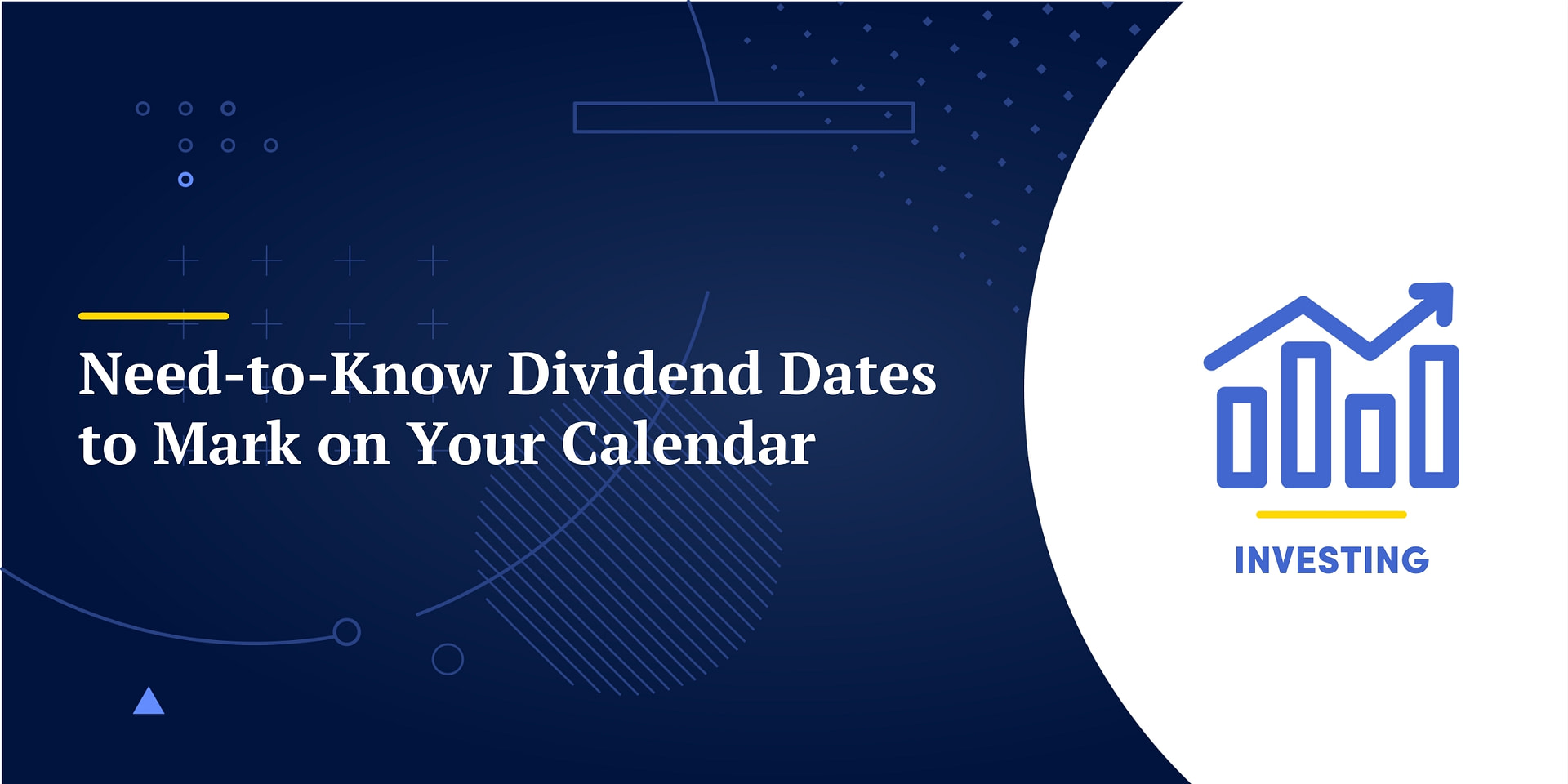Dividend investing is a well-regarded passive income strategy. However, investors shouldn’t be so passive that they’re unaware of the most important dividend dates. If you miss certain key dates, you might forgo the right to collect a dividend payment.
Get your calendar ready, as you’ll definitely want to mark down these must-know dates for informed dividend investors.
What Are the Four Most Important Dividend Dates?
The U.S. Securities and Exchange Commission (SEC) identifies four essential dividend dates that investors should know:
The Declaration Date
So, let’s say you’re interested in purchasing XYZ stock in order to collect a dividend payment from Company XYZ. The company’s board of directors will declare a dividend (the dollar amount, when it will be paid, etc.) on – you guessed it – the declaration date.
This announcement can typically be found on the company’s investor relations website. Hence, as a prospective investor in XYZ stock, you’d want to check Company XYZ’s website regularly for updates.
2. The ex-dividend date
If Company XYZ’s board declared a dividend on, let’s say, August 9, then the company might schedule the next important date, the ex-dividend date, for August 16. It’s been said that the ex-dividend date is the most important dividend-related date to know, so you’ll definitely want to mark it down.
You don’t have to own XYZ stock on the declaration date to receive the dividend payment from Company XYZ. However, you must own the stock before the ex-dividend date in order to receive the dividend payment. That date is “ex-” or without dividend, meaning you won’t get the dividend payment on or after that day.
You’d need to purchase shares of XYZ stock on or before August 15 if XYZ Company sets the ex-dividend date for August 16. Buying the shares first thing in the morning on the ex-dividend date won’t suffice.
3. The Record Date
One business day after the ex-dividend date is the record date. Thus, if the ex-dividend date falls on a Friday, the record date would be on a Monday. Let’s say, for Company XYZ, that the record date is August 17.
Did you buy XYZ stock before the ex-dividend date and continue to own it on the ex-dividend date? Great – now it’s time for Company XYZ to check its record books and determine if, in fact, you owned shares of XYZ stock before and during the ex-dividend date. If so, then congratulate yourself, as you’re eligible to receive the dividend payment that was announced on the declaration date.
Strictly speaking, you don’t have to own the shares on the record date to receive the dividend payment. It’s all about the ex-dividend date, and that’s why it’s often considered the most important of the four key dividend dates.
4. The Payable Date
Finally, there’s the payable date, which is when you’d actually receive the dividend payment. Nowadays, it’s typically deposited directly as cash in the shareholder’s investment account, though it could also be mailed as a check.
Waiting for the payable date will require some patience, as it might come several weeks after the record date. For instance, Company XYZ’s payable date might be September 7. The good news is that you’d receive the dividend payment on that day (or perhaps a few days later if it’s mailed as a check) even if you didn’t own XYZ stock on the payable date (maybe you decided to sell your XYZ stock shares sometime after the ex-dividend date).
Know the Dates, and Get Ready to Get Paid
The SEC observes that companies sometimes pay dividends in the form of stock shares instead of as cash. In that case, the dividend-related procedures may be different, so be sure to check with the dividend-paying company for further clarification on this.
In any event, knowing the crucial dividend dates – and especially the ex-dividend date – will help ensure that you don’t miss out on any payments.
Now you’ve got some tasks for your to-do list: Check the company’s investor relations website, learn the most important dividend dates, set up reminders so you don’t miss them, and of course, be sure to own some stock shares so you can start collecting those dividend payments.


